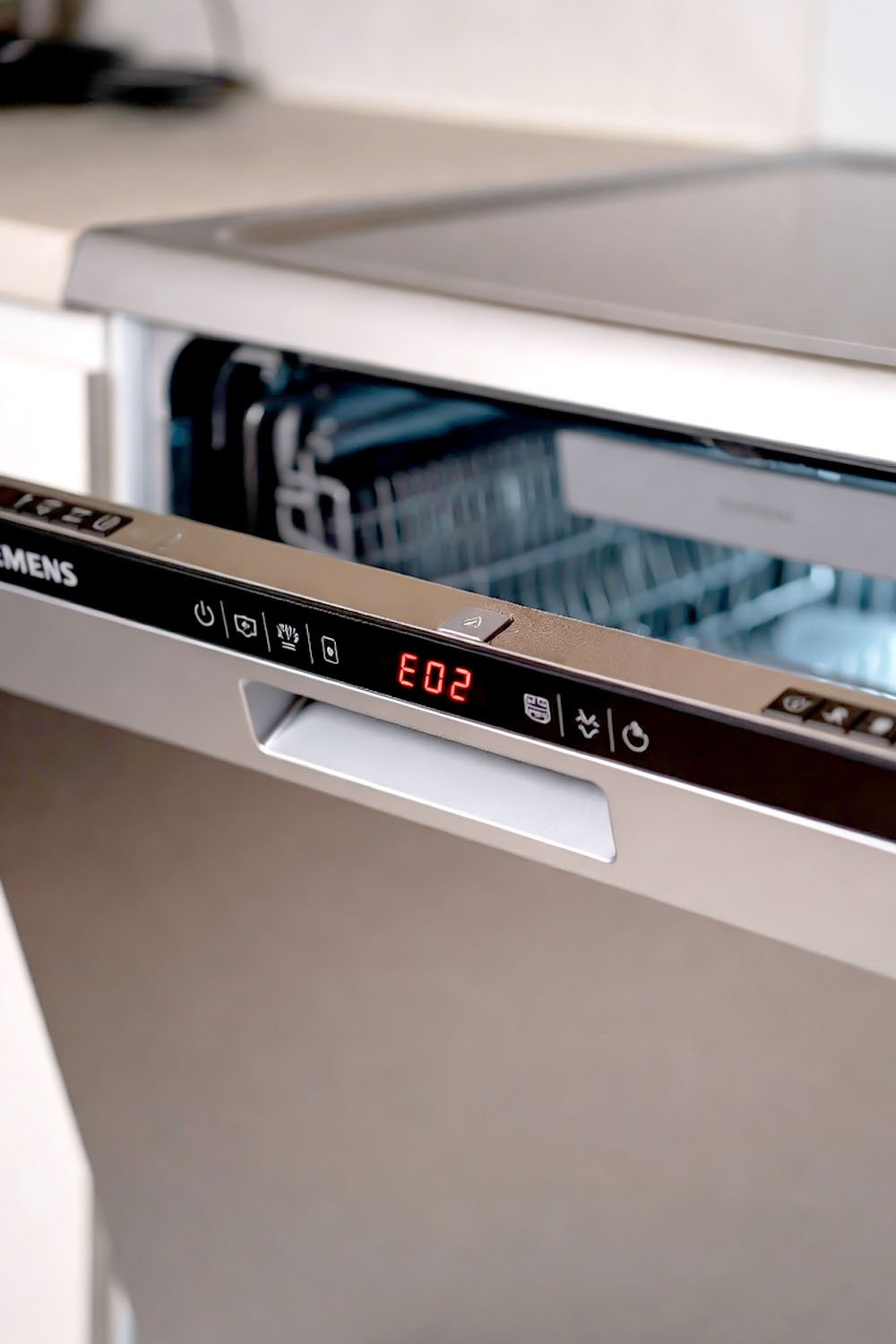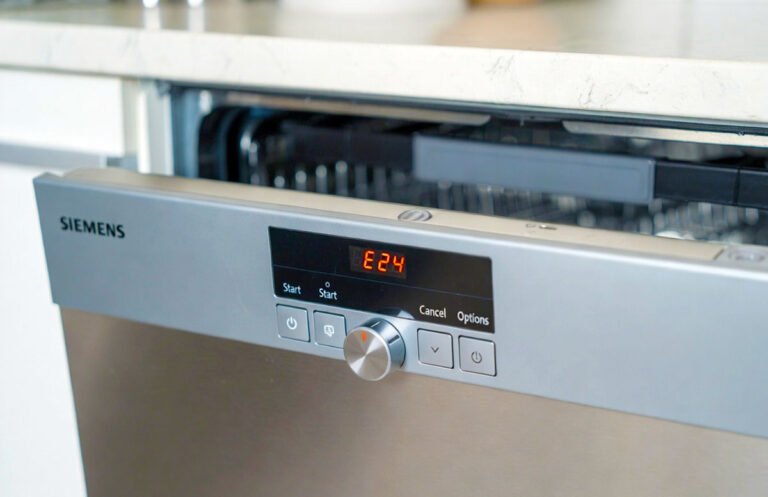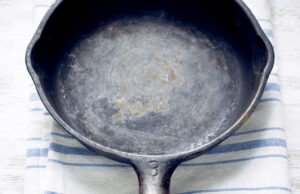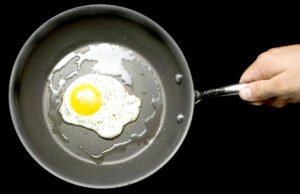As an Amazon Associate, I earn from qualifying purchases at no extra cost to you.
Should I Put Salt In My Dishwasher? Find Out Why You Really Need It
I was loading my dishwasher the other day, and suddenly I stopped. Wait… should I even be putting salt in here? I looked at the machine, the small container, and thought, “Does this really matter?” Then I remembered that my dishes sometimes looked spotty. In this article, we will break down why dishwasher salt exists, when you need it, and how it can make your dishes shine.
Understanding What Dishwasher Salt Actually Does
Dishwasher salt is not the same as table salt. It is specially made to soften hard water. Hard water has minerals like calcium and magnesium. These minerals can leave white spots on your dishes and make the dishwasher work harder.
When you put salt in your dishwasher, it helps the softener inside the machine. The softener replaces hard minerals with sodium. This keeps your water soft and helps detergents work better. Without salt, your dishwasher may not clean properly. You could notice cloudy glasses or rough spots on your plates.
Not all dishwashers need salt. Some machines have built-in systems that handle hard water automatically. But many models still require you to add salt regularly. If your dishes have white streaks or spots, it is a sign you may need salt.
Adding salt can also protect your dishwasher. Hard minerals can damage parts over time. By using salt, you reduce limescale buildup. This helps your machine last longer and run smoothly.
- Dishwasher salt softens hard water.
- It replaces minerals like calcium and magnesium.
- Helps detergents clean better.
- Protects dishwasher parts from limescale.
Checking If Your Water Is Hard
Before you put salt in your dishwasher, you need to know your water type. Hard water has lots of minerals. Soft water has fewer. Hard water can leave marks, spots, or a chalky feel on dishes.
You can check water hardness using a test kit from a store. Another way is to notice stains or white deposits in your kettle or on faucets. If these appear, your water is likely hard. Many cities provide water hardness reports. You can check online or call your local water company.
Water hardness is measured in parts per million (ppm) or degrees. If it is higher than 120 ppm, it is considered hard. In this case, using dishwasher salt is very helpful. If your water is soft, you may not need it at all.
Using salt when you have soft water usually does not harm the dishwasher. But it may be unnecessary. Adding it when not needed won’t cause big problems but wastes salt. Checking your water ensures you only add what your dishwasher really needs.
- Hard water has many minerals.
- Soft water has fewer minerals.
- Test kits or local reports help measure hardness.
- Use salt only if water is hard.
How To Add Salt To Your Dishwasher
Adding salt is simple, but you need to do it correctly. Open the dishwasher door and locate the salt container. It is usually at the bottom, near the filter. Always use dishwasher salt, not table salt.
Fill the container with salt carefully. Some machines have a funnel to avoid spills. Pour slowly to prevent dust from spreading inside. Then close the cap tightly. This keeps the salt dry until the machine uses it.
Most dishwashers have a light that tells you when salt is low. Check this regularly, usually once a month. If you forget, your dishes may start looking cloudy or rough. Regular filling ensures the dishwasher works at its best.
Never mix dishwasher salt with detergent in the main tray. Salt goes only in the special container. This protects the dishwasher and keeps it running properly. Follow the instructions in your machine manual for exact amounts.
- Locate the salt container.
- Use only dishwasher salt.
- Fill carefully and close cap.
- Check salt levels regularly.
Signs Your Dishwasher Needs Salt
You might wonder how to know if your dishwasher really needs salt. The most common sign is white spots on glasses or plates. Another sign is cloudy or rough surfaces.
If your dishwasher makes a strange noise or water seems hard to rinse off, it could mean low salt. Also, limescale can build up inside the dishwasher over time. This is another clue that salt is needed.
Some machines have a light that turns on when salt is low. This is very convenient. If your dishwasher doesn’t have this, check monthly or after every few washes. Preventing problems is easier than cleaning limescale later.
Even if dishes look okay, adding salt occasionally is good if your water is hard. It prevents long-term damage to the machine. Consistent use ensures your dishwasher lasts longer and cleans better.
- White spots or cloudy dishes.
- Rough surfaces on plates or glasses.
- Strange dishwasher noises.
- Limescale buildup inside the machine.
Choosing The Right Dishwasher Salt
Not all salts are the same. Only use salt designed for dishwashers. Other salts, like table salt, can harm the machine. Dishwasher salt is pure and coarse. It dissolves slowly without damaging parts.
Some brands also have anti-caking agents. These prevent the salt from clumping in the container. Check the label before buying to make sure it is dishwasher salt. Quality matters. Cheap salt can cause problems.
Salt quantity matters too. Some machines need 1 kg, others more. Always follow the manual. Overfilling does not clean better and may cause leaks. Underfilling will not soften water enough.
Using the right salt ensures the dishwasher runs smoothly and your dishes look great. It also protects your machine over time. Always store salt in a dry place to keep it effective.
- Use only dishwasher salt.
- Check for anti-caking agents.
- Follow machine manual for amount.
- Store in a dry place.
Maintaining Your Dishwasher For Better Cleaning
Salt is important, but it works best with regular maintenance. Clean filters and spray arms often. Remove any food debris or buildup inside the machine.
Check for limescale deposits and wipe them away if needed. This keeps the water softener working efficiently. Run an empty cycle with dishwasher cleaner once a month. This refreshes the machine.
Avoid overloading the dishwasher. Crowded dishes prevent proper water flow. This reduces the cleaning effect, even if salt is used. Proper loading ensures better washing and fewer spots.
Pay attention to detergent and rinse aid too. They work with salt to make dishes shine. Using all three correctly gives the best results every time. Regular care extends the life of the dishwasher.
- Clean filters and spray arms.
- Remove limescale deposits.
- Avoid overloading dishes.
- Use detergent and rinse aid properly.
Final Thoughts
Dishwasher salt is simple but very important. It softens hard water and protects your machine. Without it, dishes may look cloudy and parts may wear out faster. Check your water, use the right salt, and maintain your dishwasher. This keeps dishes shiny and the machine lasting longer. Using salt is small work, but it gives big results.
| Task | Tip | Frequency | Notes |
|---|---|---|---|
| Check water hardness | Use test kit or local report | Once | Helps decide if salt is needed |
| Fill salt container | Use dishwasher salt | Monthly | Follow manual amount |
| Clean filters | Remove debris | Weekly | Ensures water flows well |
| Limescale removal | Use cleaner | Monthly | Protects machine parts |
| Detergent & rinse aid | Use correct type | Every wash | Works with salt for clean dishes |
| Avoid overloading | Arrange dishes properly | Every wash | Ensures better cleaning |
Frequently Asked Questions (FAQs)
Is it necessary to put salt in every dishwasher?
Not every dishwasher needs salt. Some modern machines have built-in water softeners. If your water is soft, you may not need extra salt. However, in areas with hard water, using salt is important. It prevents spots and keeps dishes clean. Always check your water hardness to decide. Even if the machine seems fine, salt protects it over time and reduces limescale buildup. Regular use ensures dishes look clear and glassware stays shiny.
Can I use table salt instead of dishwasher salt?
No, table salt is not suitable for dishwashers. Table salt often has additives that can harm the softener and metal parts. Dishwasher salt is coarse and pure, which dissolves slowly and works safely in the machine. Using table salt can clog the container or damage the system. Always choose salt made for dishwashers. This ensures water softening works properly and extends the life of your machine. Avoid shortcuts for better cleaning results.
Do I need to add salt if my water is soft?
If your water is soft, you usually don’t need salt. Soft water already has fewer minerals that cause spots. Adding salt in this case may not harm the dishwasher, but it is unnecessary. Checking water hardness first saves money and effort. Some people still use a little salt as a precaution, but for soft water, it is mostly optional. Your dishes will still clean well without it.
Is it safe to overfill the salt container?
Overfilling the salt container is not dangerous but not recommended. Too much salt can spill and cause mess inside the dishwasher. It does not improve cleaning, and may leave residue on dishes. Always follow the machine manual for the correct amount. Using the right amount ensures proper softening without waste. A small overflow may happen when filling, but just wipe it carefully.
Can dishwasher salt expire or go bad?
Dishwasher salt does not expire like food, but it can clump if stored in damp areas. Moisture makes it hard and difficult to use. Keep it in a dry place and seal the bag or container. Proper storage ensures it works efficiently every time. If clumps form, break them up before adding. Using fresh, dry salt keeps your dishwasher softening system effective.
Do I need to use salt with every wash cycle?
You don’t need to add salt with every wash. Most dishwashers have a container that lasts for weeks or months. The light or manual check will tell you when to refill. Regular checks prevent low salt and maintain water softening. Using salt only when needed is efficient and ensures clean dishes without overusing products.
Is it necessary to clean the dishwasher if I use salt?
Yes, cleaning is still necessary. Salt helps soften water, but food debris, grease, and limescale can build up. Cleaning filters, spray arms, and running a cleaning cycle keeps the dishwasher efficient. Salt and maintenance together provide the best cleaning results. Neglecting cleaning can still cause cloudy dishes even with enough salt.
Can using too little salt harm my dishwasher?
Using too little salt reduces water softening. Hard water may leave spots, cloudiness, and limescale inside the machine. Over time, this can damage heating elements and pipes. Always fill the container according to the manual. Proper salt use protects the dishwasher and improves washing results. Consistent refilling keeps the system working efficiently.








